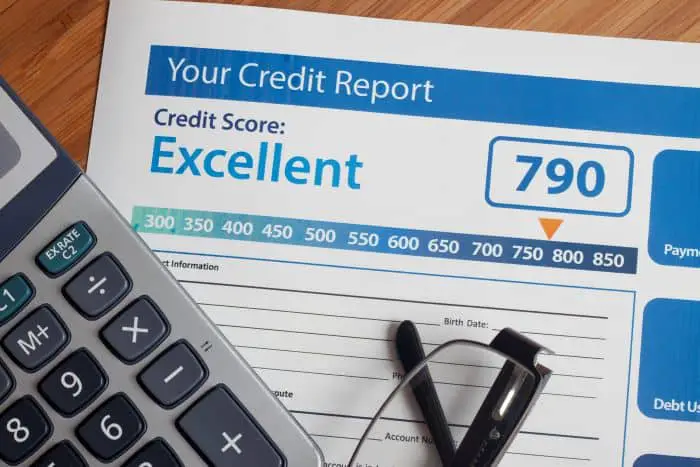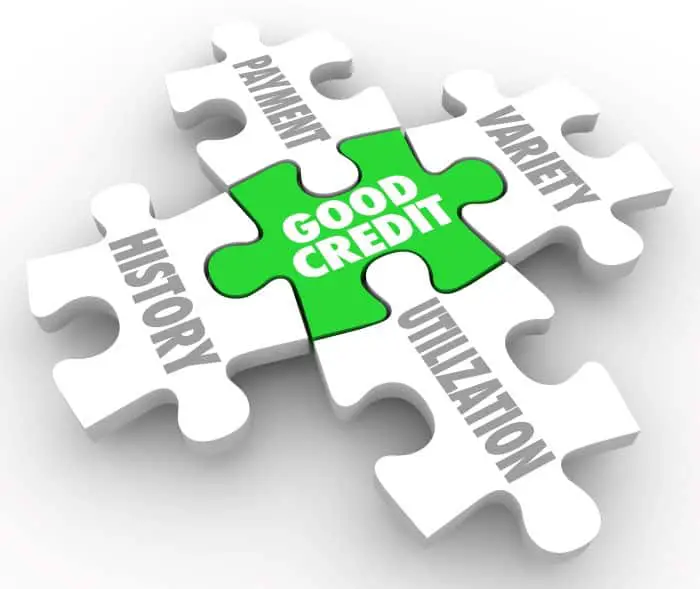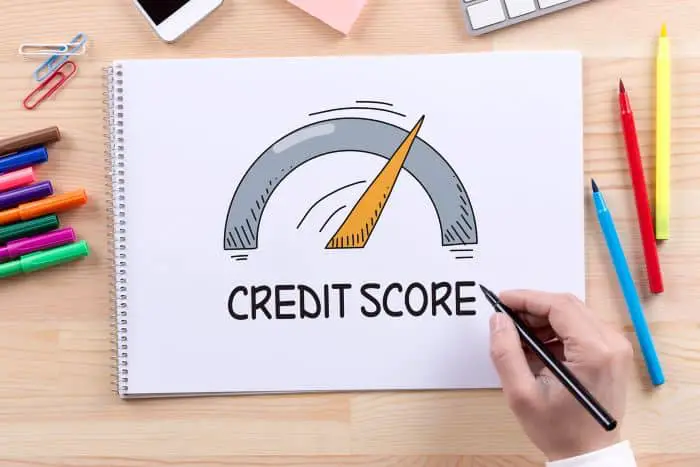Credit Report vs Credit Score. What’s the difference
The global economy is driven and thrives on credit. Credit means getting something of monetary value today and promising to repay it at some point in the future with interest.
Understanding the difference between a credit score and a credit report is explained in detail, just read to the end. A good credit score and report can surely enable you to live in a nice neighbourhood, get you approved for a consolidation loan in a financial crunch, and live in a nice apartment.
There are two factors that help lenders determine the probability that you will repay the loan as agreed and that’s: credit reports and your credit scores.
What is a Credit Score?
A credit score is a number ranging from 300 to 850 that represents the probability of a borrower to repay a loan or credit. Your credit score information is mainly used by lenders and creditors, for instance, financial institutions, credit card companies, and car dealerships before they offer credit.
Many creditors use credit scores to assess the likelihood that you will pay back a loan, mortgage, or credit card.
The higher the score the more appealing you’re considered in the eyes of lenders. Many factors determine your credit score for instance your credit history, number of credit accounts currently open, total accumulated debt, and your repayment history.
A higher score may have a huge impact on your financial future therefore it needs to be selfishly guarded. If your score is lower than 640 it’s considered poor therefore you’re a risky borrower. A score of 700 or higher is thought-out to be strong.
Credit scores better than 800 are exceptional. Normally, lenders offer the most favourable credit terms when you’re borrowing with a high credit score like low-interest rates for loans and mortgages. Leading to lower total interest costs to the borrower.
Here are the credit score ranges:
300-579: Poor
580-669: Fair
670-739: Good
740-799: Very good
800-850: Excellent
Credit scores are tabulated using models that use sophisticated analysis based on your debt repayments and borrowing history recorded.
What is a Credit Report?

A credit report is a historical financial report card compiled by the credit bureau. The information on the report is primarily used by lenders such as financial institutions or banks and other credit-granting companies before offering credit.
Credit bureaus gather the following financial information about you :
Identifying information about you: Your first and last name, telephone number, your current, and previous addresses, Social Insurance Number/Social Security number, date of birth, employers current and previous, and then provide a credit report based on the information.
Your credit history of payments to credit lenders like financial institutions, retail stores, and loan companies
Your Public record information: Things that may affect your creditworthiness for instance judgments or bankruptcies.
Previous credit inquiries: All lenders or creditors you authorized to get access to your credit information.
Other related information, such as delinquent accounts in collections and banking information. Also, comprehensive account details such as credit card limits, lines of credit limits, date accounts were opened, past-due accounts, or in good standing.
Your credit report does not include your income, purchases made with cash or cheques. Additionally, it does not include information such as ethnic background, political affiliations, and medical history, ethnicity.
Lenders make use of the reports combined with other data to assess the creditworthiness of borrowers.
Consumers are allowed to get a summary of their credit report for free under federal legislation once annually. You can fill out a form to get free credit reports from AnnualCreditReport.com. It is critically important to get your credit report because there could be items that were inserted in error then you cal dispute and get them deleted.
Credit Report and Credit Score differences explained

There are many differences between a credit report and a credit score. Read below to find some interesting differences that you might not know already:
1.Nature:
A credit score is a number determined from the information in your credit bureau file that is used by credit grantors and employers to assess your credit risk at a particular point in time. While a credit score is a number that represents the likelihood of a borrower paying back a loan or credit as agreed. In addition, it’s a summary of your other bill’s repayment history.
2.Importance
A credit score is a number ranging from 300 to 850 which shows if an individual is worthy of being offered credit. Credit score information is primarily used by credit grantors, for example, banks, loan companies, and car dealerships before they offer credit.
A credit report provides information about your identity, Social Insurance Number (Canada) or Social Security number, date of birth, past and current employers, and then provide a credit report based on the information. A credit report itself is pretty important; however, a credit score cannot be calculated without the credit report.
3.Judge of Creditworthiness
Credit reports include a summary of your present or past loan transactions, history of payments to third-party accounts like retail stores, and other financial companies. Lenders use this information after assessing risk based on your credit score to grant credit.
A credit score tells lenders your ability to pay back an unsecured or secured loan. A 750 credit score is high enough to give lenders confidence that you have the capacity to repay a credit card limit of $5,000, everything being equal.
How is a credit score determined
FICO credit score
Your credit score is calculated and generated based on the software from Fair Isaac Corporation (FICO). The FICO score uses five variables in the report and it uses different variable weighting to arrive at the final score.
Below are the variables used to determine your credit score:
- Payment history (35 percent)
- Amounts owing (30 percent)
- Credit history (15 percent)
- New credit (10 percent)
- Credit mix (10 percent)
Your credit reports provide comprehensive details regarding the previous use of credit. That data is then crunched into a single value comprising your creditworthiness known as a credit score. Many credit scores use similar variables but there can be differences in the weighting placed on each variable.
Times Negative Information Stays on Your Credit Report
The negative information like late or missed payments, accounts sent to collection agencies, accounts not being paid in full as agreed remains on your credit report for about seven years. This is regulated by a federal law known as the Fair Credit Reporting Act (FCRA). Other delinquency such as bankruptcy will remain on your report for up to 10 years.
Hard Inquiry: Two Years
Hard inquiry or a hard pull is not always a bad thing. However, a submission that requires your entire credit report deducts a few percentage points from your credit score. Too many hard credit inquiries add up and could reduce your score if you overdo it. Fortunately, these can only stay on your credit report for two years from the date of the hard inquiry.
Delinquency: Seven Years
Late or overdue payments of more than 30 days, and defaults or accounts which have been transferred to a collections agency. All these remain on the credit report for seven years from the time of the delinquency.
Foreclosure: Seven Years
Foreclosure is a legal process by which a lender takes over the property or home from the owner and sells it due to nonpayment. This blemish will appear on the credit record for seven years from the date of the first missing payment.
Lawsuit or Judgment: Seven Years
Outstanding civil judgments stay on your credit record for seven years after the litigation. You can get a free credit report from the following three reporting firms, Equifax, Experian, and TransUnion. With a free credit history report, you can review or dispute any negative ratings included on your credit report in error.
Bankruptcy: Seven to Ten Years
Bankruptcy remains on credit reports usually around 7 and 10 years depending on the type of bankruptcy. Bankruptcy is viewed as the “Credit Score Killer,” it wipes off between 130 to 150 points off your FICO credit score. Completion in Chapter 13 of Insolvency is discharged seven years after declaration. Chapter 7, 11, and 12 of Insolvencies remain on your credit report for 10 years from the date of reporting.
Related: 15 Proven Strategies To Pay Off Your Credit Card Debt Fast
Advantages of a Good Credit Score

A good credit score is pretty important as it does help you in most aspects of your financial life.
Lower Interest Rates when borrowing
The interest rate is the cost of borrowing money. With a high credit score expect lower interest rates and many other favorable borrowing terms on mortgages or loans. A high credit score can get you approved for a low-interest rate on a mortgage from a bank or broker. This lowers the cost of borrowing and results in lower monthly payments. Lower monthly mortgage payments result in accelerated mortgage payoff and more disposable income to you.
A high credit score also can get you a much lower interest on a car loan. It gives you more negotiating power in the process as you can easily walk away from a business deal and easily get it someplace else.
Approved for High Credit Limits
Your credit approval financing potential is not only dependent on your salary but also on your credit score. One of the advantages of having a decent credit score is that lenders are likely to let you borrow more credit – if you’ve proven in the past that you pay back what you owe on time. You may still be eligible for certain loans with a poor credit score, but the amount approved will be minimal and at a much higher interest rate.
Better Car Insurance Rates
Car insurance providers use a credit report to assess the risk of would-be clients. They use information from your credit report and previous insurance records to determine your insurance risk ranking. You are penalized when you have poor credit that’s reflected in higher insurance premiums. On the contrary, a decent credit score will get you a lower premium for a comparable car value than a lower credit score counterpart.
Forgo Security Deposits on Utilities
Many utility companies conduct a credit check when signing up for utilities. If you have fantastic credit you save between $100 to $200 in security deposit money. The saving can go towards paying for the first and second months’ bill payments instead of being locked up with the utility company until you cancel the services.
Related: 8 Simple Tips to Fix Your Credit Score Fast
Disadvantages of a Poor Credit Score
Now that we know how a credit score can be beneficial if it’s good, let’s have a look at the other side:
Minimal to no chance of loan approval
If you have a bad credit history or records it prevents you from getting approved for a new credit card or loan -unless you have it secured by cash or other financial assets.
Getting an outstanding credit score does not guarantee acceptance, as lenders also weigh certain considerations, such as salary and other outstanding debt such as a mortgage. Hands down, a strong credit score improves the odds of getting approved for new credit or loans.
Pay High interest on loans
If you get approved for a car loan, line of credit, and mortgage, you get charged a higher interest rate. You are viewed as a high-risk borrower therefore private lenders or banks are inclined to charge you a higher interest rate.
Higher Insurance Claim Projections
Almost all insurance companies check your credit history and score. Based on historical statistical data. They believe that poor credit scores are correlated with an increased level of claims that a new client would make in the future.
Hard to Get a Job
Many job opportunities particularly in banking, investing, accounting, and higher management levels require employers to run a credit check. Employers use the information to make hiring decisions. If you have a crapy credit history for instance fraud, you may miss out on juicy employment opportunities.
Employers also check credit to get your financial snapshot of a potential hire, and also to see signs of financial stress that may reveal the risk of theft or fraud.
Difficult to Start Your Own Business
It’s extremely challenging with a poor credit score to launch your own company. Many start-up companies require a bank loan to get off the ground. With a poor credit score, banks and loan companies would be unwilling to approve a business loan application, despite an outstanding company proposal or business plan with surefire potential for success.
Conclusion of Credit Score and Credit report differences explained
Your credit score and your credit report are critical financial reports that should be protected. It’s recommended to at least get a credit check once a year. To see if you’ve accounts like credit cards and loans obtained in your name through fraud. Utilise credit reporting agencies like AnnualCreditReport.com to obtain a credit history report for free online.
A good credit score will enable you to get approved for a mortgage and live in a nice, safe neighborhood, get you approved for a car loan, and a consolidation loan to save huge interest cost s. For a renter, you can sign a rental agreement in a nice apartment with awesome amenities in the vicinity for your family and get approved for a line of credit in an emergency.
You may also like the following posts:
- 15 Proven Strategies To Pay Off Your Credit Card Debt Fast
- A Simple Guide to Credit Report vs Credit Score explained
- 8 Simple Tips to Fix Your Credit Score Fast
- Insanely Easy Ways To Get A Free Credit Report
- Drowning In Debt: The Definitive Guide To Debt Management & Paying Debt Off
- How does Consumer Credit Counseling Services Help to Tackle Credit Problems
- The Practical Guide to Purchasing Your First Investment Property
- Renting vs. Buying a House Debate: What’s Best For You?
Let me know your thoughts in the comments below!!
































44 thoughts on “A Simple Guide to Credit Report vs Credit Score explained”
It is actually a great and useful piece of info.
I’m glad that you simply shared this helpful information with us.
Please keep us informed like this. Thanks for sharing.
Also visit my website: Iron Stack Pro Review
I’m glad the article was useful. We strive to post information that has value to our leaders.
As a Newbie, I am always exploring online for articles
that can be of assistance to me. Thank you
Check out my homepage … Apricot Lake Cream Price
Happy to note that you found the article valuable and informative
I believe other website proprietors should take this web site as an model,
very clean and excellent user pleasant layout.
Here is my web page: Back
Much appreciate your comment
Great post and right to the point. I don’t know if this is truly the best place to ask but
do you folks have any thoughts on where to hire some professional writers?
Thank you 🙂
Here is my webpage … Skin Remembered Cream
Thanks. Check out fiverr.com they have lots of freelancers there.
Fabulous, what a webpage it is! This web site presents helpful facts to us, keep it up.
Here is my homepage – https://www.dhootgroup.net/component/k2/itemlist/user/3010867
Good to hear that the article was very helpful.
Hey There. I discovered your blog the use of msn. That is a really smartly written article.
I will make sure to bookmark it and come back to read more of your useful info.
Thank you for the post. I’ll definitely comeback.
Have a look at my homepage :: Goto
Come back anytime for sure. We will definitely have more helpful content for you.
Great post explaining this topic. I see many freelancers not understanding their credit report or how important it is for when borrowing money in the future
I totally agree with you Alison, it’s key to understand your credit report and at least check it once a year.
Greetings! Very helpful advice within this article! It is the
little changes that make the largest changes.
Thanks for sharing!
Totally agree with you, small changes can lead to significant positive changes.
I think everything wrote was very reasonable. However, what about this?
suppose you were to create a awesome headline? I ain’t suggesting your content is not good., but what if you added a title to maybe grab folk’s attention? I mean A
Simple Guide to Credit Report vs Credit Score explained – Investadisor is a
little boring. You could glance at Yahoo’s home page and note how they write news titles to grab viewers to click.
You might try adding a video or a related pic or two to
get readers excited about everything’ve got to say. Just my opinion, it could make your posts a little bit
more interesting.
Thank you Antonetta, your constructive suggestions are noted and we will look into them.
I was curious if you ever thought of changing the structure of your website?
Its very well written; I love what youve got to say. But maybe you could a little more in the way of content so people could connect with it better.
Youve got an awful lot of text for only having 1 or 2 pictures.
Maybe you could space it out better?
Thank you for your constructive comments. Well will look into the issue and make changes accordingly to make your reading experience better
excellent points altogether, you just received a brand new reader.
What would you recommend in regards to your put up that you just made a few
days ago? Any certain?
Appreciate your comment
I think this is one of Read the full content (Salvador) most vital information for me.
And i’m glad reading your article. But want to remark on few general things, The
website style is perfect, the articles is really nice
: D. Good job, cheers
Thank you. Cheers
Excellent web site you have here.. It’s hard to find excellent writing like yours nowadays.
I seriously appreciate people like you! Take care!!
We appreciate your comment and we will keep posting the best content. Cheers
Wonderful, what a website it is! This website provides helpful information to us,
keep it up.
Much appreciate
What’s up to every body, it’s my first go to see of this blog;
this weblog includes remarkable and genuinely good material in support of readers.
Thank you for your comment
Thank you for sharing your thoughts. I truly appreciate your
efforts and I am waiting for your next post thanks once again. 0mniartist asmr
Thank you
When someone writes an article he/she keeps
the plan of a user in his/her brain that how a user can understand it.
Thus that’s why this piece of writing is outstdanding.
Thanks!
Thanks Anastasia
Thank you
I really like it when individuals get together and share opinions.
Great website, stick with it!
Much appreciate, our goal is to share knowledge and educate.
Pingback: 8 Simple Tips to Fix Your Credit Score Fast - Investadisor
Pingback: A Step By Step Guide: How to Get a Mortgage Pre-approval For a Home - Investadisor
Pingback: A Super Simple Beginner's Guide to Financial Literacy and Why Its Important - Investadisor
Pingback: 14 Best Financial Literacy Books by Black Authors - Investadisor
Pingback: How To Move Out Of Your Parents' House At 18 -A Guide To Lower Your Stress of Moving Out - Investadisor
Pingback: Credit Karma vs Borrowell - Key Differences? - Investadisor